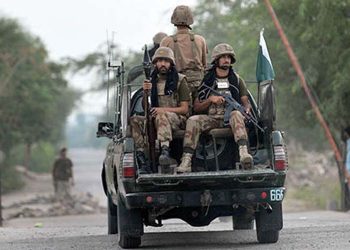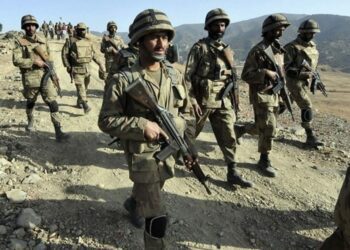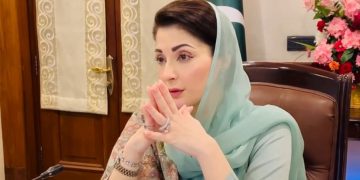ISLAMABAD: The Supreme Court (SC) on Tuesday resumed hearing of PTI’s petition against the Election Commission of Pakistan’s (ECP) decision to postpone the Punjab polls from April 30 to October 8.
A large five-judge SC bench headed by Chief Justice of Pakistan Umar Ata Bandial and comprising Justice Ijaz-ul-Ahsan, Justice Munib Akhtar, Justice Aminuddin Khan and Justice Jamal Khan Mandokhail is hearing the petition.
During the course of hearing today, newly appointed Attorney General (AG) Mansoor Usman Awan drew SC’s attention towards the dissenting notes of two judges, Justice Syed Mansoor Ali Shah and Justice Jamal Khan Mandokhail, saying both dismissed the March 1 SC decision regarding holding elections in Punjab and KP within 90 days by 3-4 majority, to which Chief Justice of Pakistan (CJP) Umar Ata Bandial said that the two judges of the Supreme Court who gave dissenting notes had their own opinion and it was not related to the current case dealing with the extension of Punjab and Khyber Pakhtunkhwa elections’ date.
Justice Manokhail pointed out that “the number of judges [who issued] the March 1 judgement is Supreme Court’s internal matter”.
He then inquired whether holding elections within the stipulated time of 90 days was not a constitutional requirement. “Can the ECP delay the date for polls?”
At that, the CJP thanked Justice Mandokhail for “clearing the matter”.
Justice Mandokhail also remarked that although the elections would be held in 90 days but the question remained as to who had the authority to delay or postpone elections.
Barrister Zafar recalled that in its order, the ECP had quoted the finance secretary as saying it would be difficult to release the funds. “It is to be noted that Finance Ministry had used the word difficult, not rejected [the request].”
Justice Akhtar said that the finance secretary had stated that it did not have funds for elections today and in the future. “This means that elections will not take place at all. How can a government secretary issue such a statement?”
He also noted that after it was collected, the tax was deposited in the federal consolidated funds.
Here, PPP’s Naek contended that federal consolidated funds were only spent with the approval of the Parliament to which Justice Akhtar asked: “If the assembly is dissolved, will the funds not be released?”
The lawyer replied that in the present scenario, a National Assembly was functioning, elaborating that a new assembly could approve the expenditure. “Only the ECP could provide an explanation for the finance secretary’s statement,” he added.
Justice Mandokhail also asked how the finance secretary could disburse funds beyond the approved budget to which Barrister Zafar said that this was a technical point.
At one point during the hearing, the CJP proposed that if cuts were made to his salary and others, then the vital task of carrying out elections could be completed. On this occasion, he proposed a pay cut for himself and other judges so that the “vital task” of holding elections across the country could be funded and completed.
Just before going to break, the Chief Justice gave most significant remarks to one question, saying “no law empowers ECP to postpone elections, Section 158 of Election Act doesn’t allow ECP to cancel elections.”


































